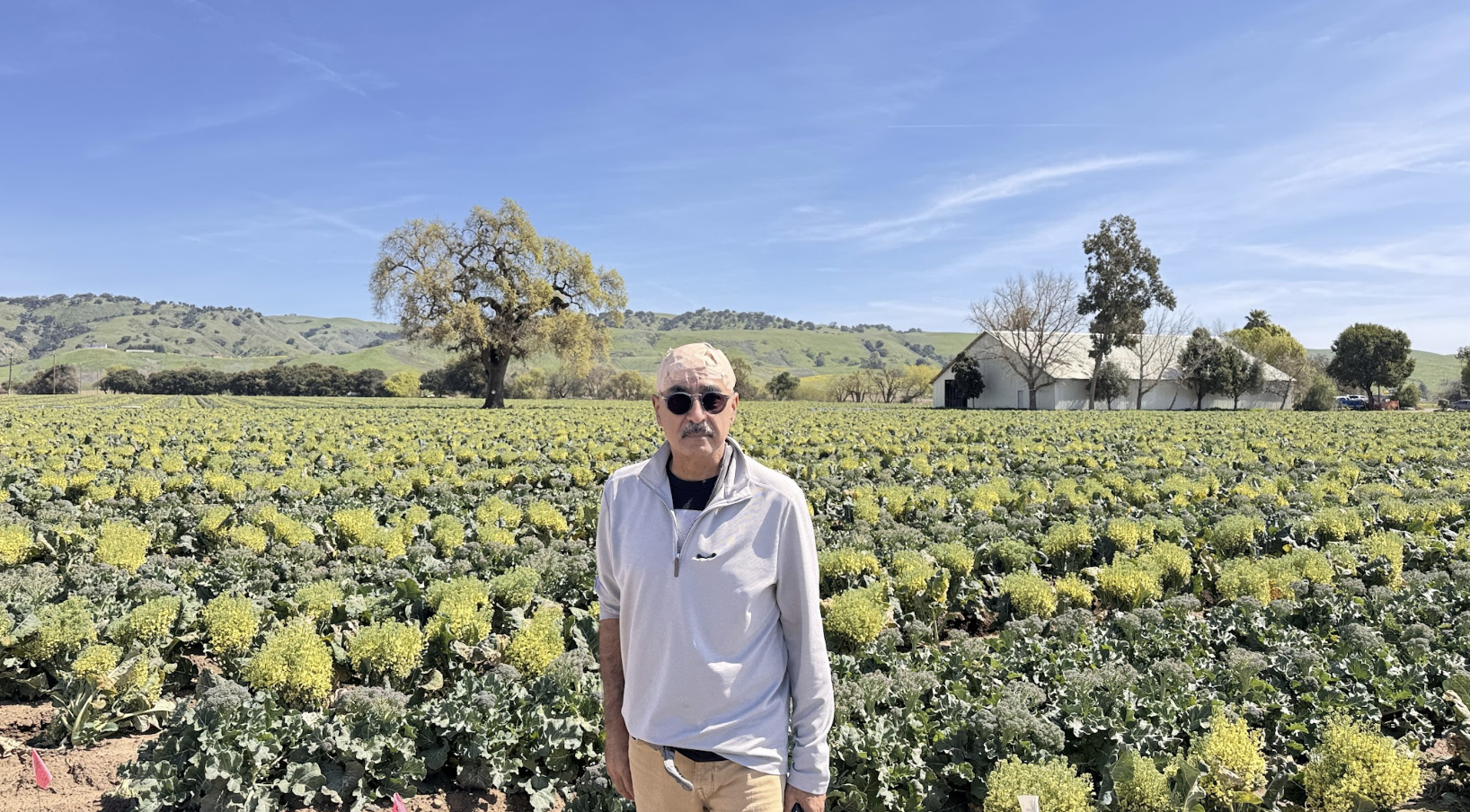
A futuristic vaccine to prevent Alzheimer’s disease is in the works right here in Southern California. And it won’t even involve needles.
Researcher Michael Agadjanyan at the Institute for Molecular Medicine in Huntington Beach, along with David Sultzer from UCI MIND and Lon Schneider from USC, received a $12 million grant from the National Institute on Aging to support clinical trials aiming to keep “the long goodbye” at bay.
Six sites across the nation are hosting the Phase 1 trial that they designed, including the Hoag Memorial Hospital Presbyterian’s Pickup Family Neurosciences Institute in Newport Beach. The vaccine and its monthly booster will be administered to people early in the disease not by needle injection, but by pressure pushing it into the skin. The hope is to spur the immune system to action to block the buildup of harmful material in the brain, and/or to clean it up.
“These are clever new developments that take advantage of all these advances in technology and in our understanding of the disease,” Sultzer said. “The idea of being able to prevent, with a vaccine, people from getting Alzheimer’s — that’s a powerful opportunity.”
Dr. Gus Alva, principal investigator at Hoag, agrees. “This is probably as exciting as it gets,” he said. “Everything about this trial is groundbreaking — a vaccine that might actually help prevent the condition, rather than allowing it to set in and then trying to treat it.”
Forty-eight volunteers aged 60 to 85 with mild cognitive impairment due to Alzheimer’s disease are sought for the trial, which is also underway in Arizona, Florida, Georgia and New Jersey.
Hoag is the only trial site in California. It’s hoping to enroll about a dozen people. For more information, call 949-764-6797 or email cl**************@ho**.org.
Details
Alzheimer’s is characterized by abnormal deposits of proteins throughout the brain, impairing the function of once-healthy neurons. It’s the No. 3 cause of death in Orange County. About 84,000 people in O.C. are either living with, or at risk of developing, the condition, according to county statistics and the Alzheimer’s Orange County association.
Nationwide, some 6.2 million people aged 65 and older have Alzheimer’s, and that’s expected to more than double by 2050.
“Up until now, AD (Alzheimer’s disease) therapeutics have mostly focused on treating the underlying pathology after the disease has taken hold. However, once pathology begins and neurons are damaged, it becomes impossible to stop the disease,” the Institute for Molecular Medicine explained last year when announcing the NIA grant.
“Current data suggest that a preventive vaccine administered before disease onset could inhibit (amyloid protein) aggregation and significantly delay AD.”
The hope is that, eventually, this vaccine can be used to prevent Alzheimer’s in healthy people at risk of developing it. The immediate goal, however, is to evaluate its safety, tolerability and ability to evoke an immune response; as well as to measure its impact on beta-amyloid levels in the brain. That protein is a main component of plaques typical of Alzheimer’s.
Investigators are hopeful. Recent trial data showed that immunotherapy could clear/reduce brain amyloid plaques, and even slow cognitive decline, in vaccinated subjects when used as a preventive measure, the study abstract says.
It was shown to be safe in animal trials. Future phases will examine the vaccine in asymptomatic people at risk of cognitive impairment or Alzheimer’s.
Innovation
The Institute for Molecular Medicine, a principal investigator, is a nonprofit seeking to understand, prevent and cure chronic human diseases. It works with a patented, universal vaccine platform technology that can support DNA, RNA or recombinant protein vaccine designs. The nonprofit’s affiliate, Nuravax, is a biotech company licensed to commercialize the vaccines.
UC Irvine, a longtime hub of Alzheimer’s investigation, was recently awarded a $47 million grant from the National Institute on Aging to support a team developing next-generation mouse models for studying late-onset Alzheimer’s. Other Alzheimer’s trials are underway at Hoag as well.
“After decades of effort, the medical field is able to offer Alzheimer’s patients options. There is a whole menu of treatments becoming available, and now a possible prevention, that patients can choose from based on what might fit them best,” Alva said in a statement. “We are very excited to be at the forefront of those opportunities, especially the vaccine. Most of the at-risk people in the U.S. don’t get a crack at this vaccine, but the residents of Orange County do.”
UCI’s Sultzer envisions a time when it’s just a normal part of health care — you turn 50, see your doctor for a regular checkup, and get a vaccine to ward off Alzheimer’s. It’ll take years to get through clinical trials — AG074983 if you want to follow — but investigators are hard at work. As we all get older, one might say it’s a matter of enlightened self-interest.
By: OC Register
Also featured in: Newport Beach Independent, Stu News Newport








